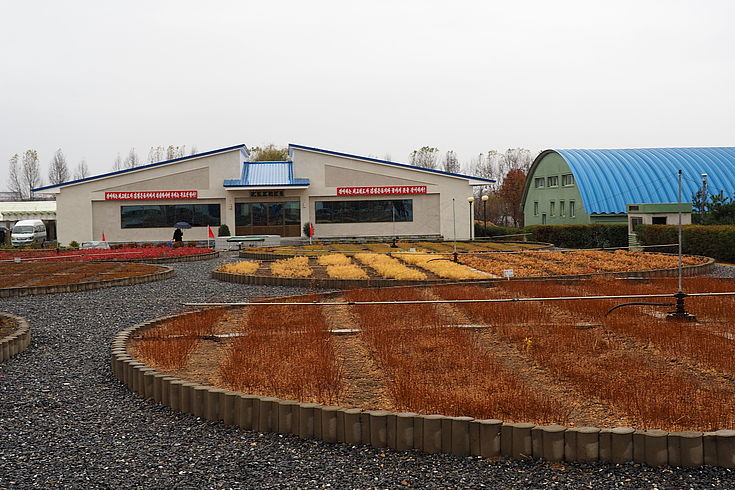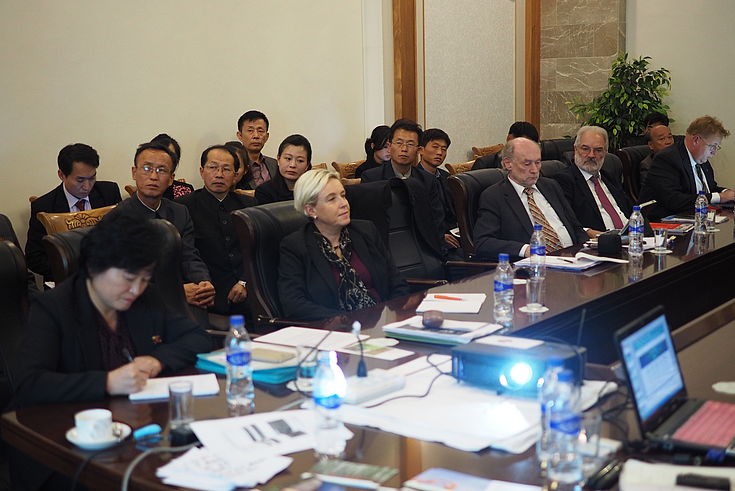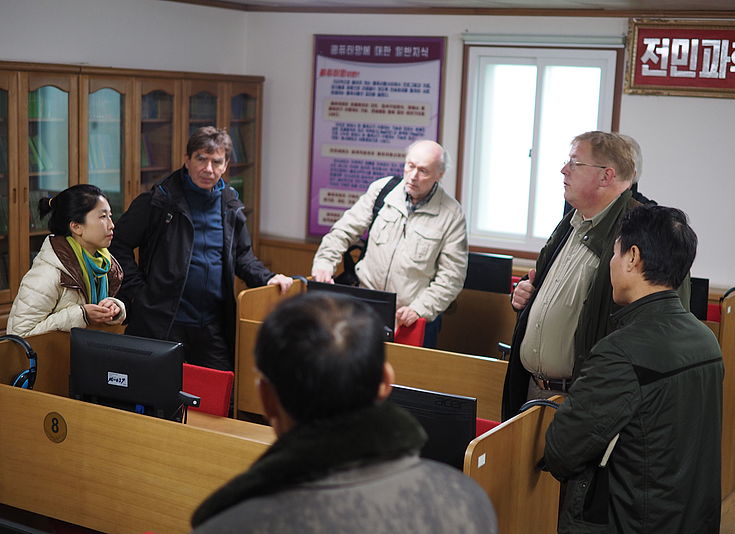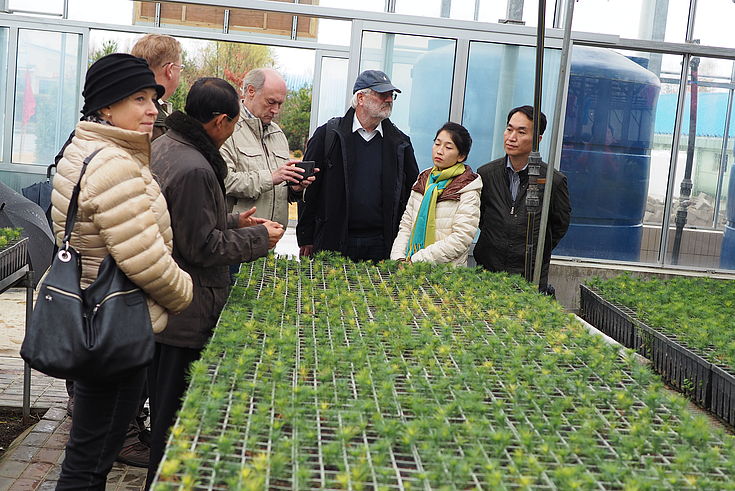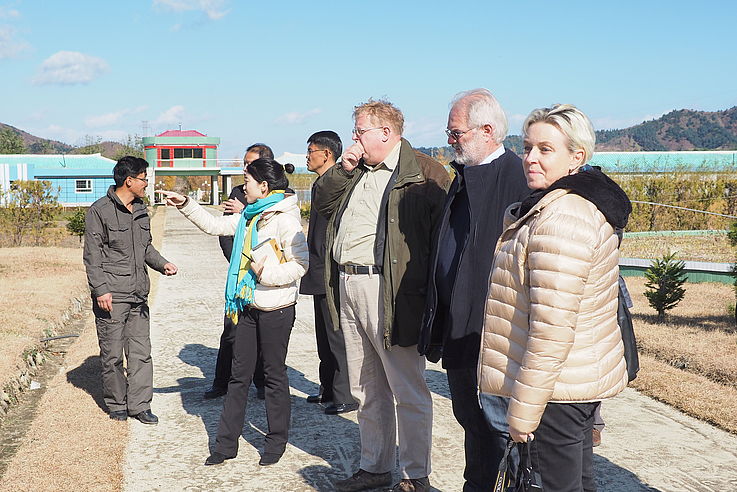Seminar
German-North Korean Cooperation in the Field of Forestry
Central tree nursery in Pyongyang
HSS
For the last 30 years, most countries in Europe have developed a National Forest Inventory providing exact data about the forests’ status in the respective countries. However, as part of a forest restoration campaign North Korea now also is developing such a modern forest inventory as well as a 20-year afforestation plan for the country.
Despite the recent progress of rapprochement of the two Koreas, when considering the political level international relations are still at odds with the nuclear program of North Korea. However, an exchange about forestry is definitely a way to initiate a dialogue that creates mutual trust and is needed to improve the living conditions in rural areas in the country. Moreover, it is a global challenge and duty to preserve the environment especially regarding issues like Climate Change or transboundary ecosystems. Thus, HSF Korea supported the current efforts by holding a seminar on forest inventory in Pyongyang, as well as discussions about potential cooperation in the future on topics related to the environment.
Workshop on experiences of the German Forest Inventory
HSS
The workshop on experiences of the German Forest Inventory took place on 7th November 2018. The General Director of the Ministry of Land and Environment Protection, Mrs. Ri Kyong Sim, opened the seminar by emphasizing that international exchange and cooperation as well as the usage of lessons regarding afforestation are essential to achieve DPRK’s objectives (Democratic People´s Republic of Korea, North Korea) which it has set on account of its efforts on forest rehabilitation. Dr. Susanne Luther, head of the Institute for International Cooperation of HSF Korea, followed with her opening remarks. She mentioned that in Germany from the 18th century qualitative evaluations of forests started, and that over time emerged a sophisticated toolbox to analyze and describe forests, which is regularly in use during the so-called "Federal Forest Inventory" (Bundeswaldinventur). She also gave a warm welcome to Dr. Heino Polley from the Thünen-Institute in Eberswalde. Dr. Polley coordinated for many years the German Federal Forest Inventory and shared his experiences with North Korean foresters during this year’s seminar.
Dr. Polley, Mr. Lange and Dr. Seliger listening to explanations by North Koreans
HSS
Dr. Polley first presented the forestry industry in Germany to the 50 participants. He explained the effects of federalism on the administrative structure of the forestry sector, the distribution of tree species and the economic production and use of timber in Germany. The main part of the seminar focused on the National Forest Inventory of Germany. While the forest surveys by interviewing landowners had been common for more than two centuries, the first modern national forest inventory was carried out on a sample basis between 1986 and 1988. As is so often the case, the challenges of the time led to the need for closer monitoring, in this case the fear of forest dieback in Germany, triggered by increasing air pollution, which led to significant damage to German forests. During the discussion the North Korean foresters showed interest and asked various questions about the adaptation of German methods in North Korea.
Visit to a building of the Central Tree Nursery in Pyongyang.
HSS
During the following days there were several visits to the Central Tree Nursery in Pyongyang and the Model Reforestation Site in Sangseo-ri, Pyongannam-do. Both sites have been part of a project on sustainable reforestation, which was implemented by the HSF Korea from 2014 until 2018, with the objective to improve the capacity of the North Korean forestry sector and consequently the living conditions of the population in the rural areas. The project was also funded by the European Union. The delegation made use of the opportunity to visit three of the city’s tree nurseries during the journey to Wonsan. In Wonsan and during a visit to the Sepho Table Land, where intensive animal husbandry is introduced to a plateau in the Province of Gangwon, the delegation was able to learn about current efforts in North Korea to develop the agriculture and forestry sector. Moreover, political discussions about potential cooperation within the boundaries of the current sanction’s regime and despite the differences on the political level were part of the program. Global topics, such as forestry as well as environmental challenges, allow for cooperation in spite of political disagreements, as these due to their global impact ask for urgent, joint and thorough international efforts.

